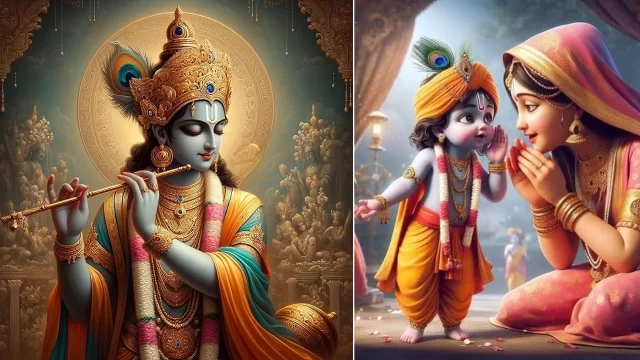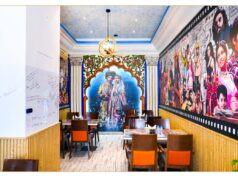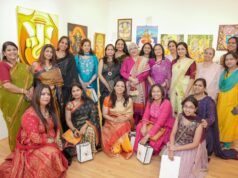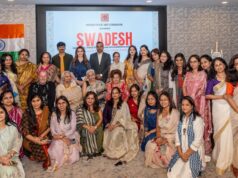Krishna Janmashtami, also known as Janmashtami, is a major Hindu festival commemorating Lord Krishna’s birth—the eighth avatar (or incarnation) of Vishnu. Lord Krishna, the Hindu god of compassion, protection, and love, is one of the most widely worshipped and beloved deities in Hinduism.
Observed under various names, including Gokulashtami and Shrikrishna Jayanti, Janmashtami is an auspicious occasion celebrated enthusiastically and passionately by Hindus in India and worldwide. In Gujarat, it is referred to as Satam Atham. This year, we will celebrate Lord Krishna’s 5251st birth anniversary. With the festival approaching, here’s all you need to know.
History
Krishna Janmashtami is celebrated on the Ashtami (eighth day) of the Krishna Paksha (dark fortnight) in the month of Bhadrapada as per the lunisolar Hindu calendar, which typically falls in August or September according to the Gregorian calendar.
In 2024, Krishna Janmashtami is being celebrated on Monday, August 26th. The puja muhurta (auspicious time for worship) begins at midnight and continues until the early morning hours of the next day. It is believed that Lord Krishna was born at midnight, and devotees stay awake to welcome his arrival.
Origin and Significance
Janmashtami has been celebrated since the era of Lord Krishna’s birth, marking over 5,200 years of this ritualistic observance. According to Vedic time calculations, in 2024, it commemorated the 5,251st anniversary of Lord Krishna’s birth.
The primary deity worshipped during Janmashtami is the infant form of Lord Krishna, known as Bal Gopal and Laddu Gopal; in addition to, lord Krishna’s biological parents, Vasudeva and Devaki, along with his foster parents, Nanda and Yashoda, and his siblings, Balabhadra and Subhadra, are also venerated during the celebrations.
This festival holds great significance as it celebrates the eternal love between the divine and his devotees. In historic cities like Mathura, Vrindavan, and Dwarka, Janmashtami is observed as a family member’s birth anniversary.
Celebrations and Rituals
Krishna Janmashtami is a joyous celebration that brings together devotees from all walks of life to honour the divine love and wisdom of Lord Krishna, across India, with each region having its unique traditions and customs.
In Mathura and Vrindavan, the birthplace of Lord Krishna, the festival is celebrated with grand processions, cultural programs, and the reenactment of Krishna’s life events. In Gujarat and Maharashtra, the festival is known as Janmashtami or Dahi-Handi and Gokulashtami, respectively, with the breaking of the dahi-handi being the main attraction.
In West Bengal, Krishna Janmashtami is celebrated as Janmashtami or Krishnaashtami, with devotees offering flowers, sweets, and prayers to the deity. In South India, the festival is known as Gokulashtami or Ashtami, with the celebration of Lord Krishna’s childhood mischief and his love for butter being the focal point.
During the celebrations, devotees fast, perform puja (worship), sing bhajans (devotional songs), and engage in various cultural activities. Many temples and households organise elaborate decorations, such as creating a small cradle for Lord Krishna and decorating it with flowers and colourful cloth.
Many devotees observe strict dietary restrictions and fasting during Krishna Janmashtami. Some refrain from consuming grains, while others avoid certain food items like onions, garlic, and non-vegetarian food. The fast is broken after the midnight puja or the next morning with the consumption of a special food item called Krishna Prasadam, which is typically made of milk, yoghurt, and fruits.
Wishing all our readers a very Happy Janmashtami!










